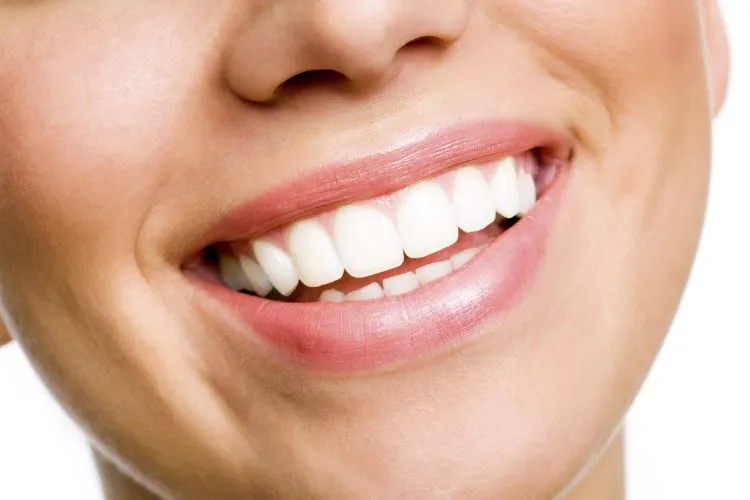Water quality is a critical public health issue that impacts various aspects of daily life, from drinking and cooking to hygiene and health maintenance.
Among the different types of water quality concerns, the hardness of water, characterized by its high mineral content, stands out for its potential effects on dental health.
So, is hard water bad for teeth?
This article delves into the scientific foundations, benefits, risks, and management strategies concerning hard water and its influence on oral health.

💦 Understanding the Basics of Water Hardness
What is Hard Water?
Hard water is water that contains a high concentration of minerals, primarily calcium and magnesium, which it picks up as it moves through deposits of limestone and chalk in the environment.
The hardness of water is typically measured in parts per million (ppm) or grains per gallon (gpg), indicating the concentration of mineral ions present.
Sources and Prevalence of Hard Water
Geographical variations significantly affect the hardness of water, with certain regions naturally predisposed to higher mineral concentrations due to their geological makeup.
This section explores the global distribution of hard water and its common sources.
💦 Is Hard Water Bad For Teeth?
The Positive Effects of Hard Water on Dental Health
The mineral content of hard water, particularly calcium and magnesium, is known to play a crucial role in dental health.
This section examines the mechanisms through which these minerals contribute to strengthening tooth enamel and preventing cavity formation, backed by scientific evidence.
Potential Risks Associated with Hard Water Consumption
While hard water has its benefits, excessive consumption of water with high levels of certain minerals, like fluoride, may lead to dental conditions such as fluorosis.
This part of the article scrutinizes the balance between beneficial and potentially harmful effects of hard water minerals on dental health.
💦 Comparative Analysis: Hard Water vs. Soft Water
Dental Implications of Consuming Soft Water
Contrasting hard water, soft water has reduced mineral content but may still impact dental health in various ways.
This section provides a comparison between hard and soft water, focusing on their respective influences on oral hygiene and enamel integrity.
💦 Mitigating the Effects of Hard Water on Dental Health

Practical Solutions for Households
For individuals concerned about the potential adverse effects of hard water on their dental health, several practical solutions are available.
This includes the use of specific dental care products, water softening technologies, and dietary adjustments to manage mineral intake effectively.
Recommendations from Dental Professionals
Advice from dental healthcare providers plays a crucial role in navigating the impacts of hard water. This section outlines recommended practices for maintaining optimal dental health while living in areas with hard water.
💦 Moving Forward: Sustainable Practices and Future Research
The Role of Community Water Management
Addressing the challenges and opportunities presented by hard water involves community-level water management strategies.
This part discusses sustainable practices for water treatment and management that balance health benefits with environmental considerations.
Areas for Further Research
Despite the wealth of knowledge on the subject, gaps remain in fully understanding the intricate relationship between hard water and dental health.
This section highlights areas where further scientific research could illuminate best practices for managing water hardness in the context of public health.
💦 Hard Water and Tooth Development in Children
During the pivotal stages of tooth development in children, the mineral content of hard water assumes a significant role.
The elements like calcium and magnesium, which are abundant in hard water, contribute to the formation and maintenance of strong teeth, playing a protective function against tooth decay.
It’s worth noting, however, that there is a delicate balance to maintain; excessive exposure to minerals such as fluoride during the development phase can lead to dental fluorosis, causing mild to severe aesthetic changes to the enamel.

Consequently, pediatric dental health experts advocate for guidelines that regulate safe mineral intake from water during childhood.
These guidelines ensure children receive the beneficial aspects of these minerals while avoiding the pitfalls of overexposure.
Parents and caregivers are encouraged to be aware of their local water quality and consult with healthcare professionals to ensure that their children’s consumption remains within the recommended levels to foster optimal dental development.
💦 Case Studies: Regional Differences in Dental Health and Hard Water
Research into the impact of hard water on dental health has revealed intriguing regional variances that underscore the complex relationship between water mineral content and oral hygiene.
Communities with hard water supplies, characterized by elevated levels of calcium and magnesium, have shown a propensity for stronger tooth enamel among residents, potentially due to these minerals’ reinforcing effect on dental structures.
Conversely, the dental health landscape shifts markedly in areas with high fluoride levels in water. While fluoride is known to prevent tooth decay, excessive exposure can lead to fluorosis, characterized by staining and pitting of the teeth.
Comparative studies between regions with high and low fluoride concentrations in hard water have illuminated this dual-edged nature of fluoride.
These observations suggest that while certain minerals in hard water can have protective dental benefits, an optimal balance is necessary to prevent adverse effects such as fluorosis, highlighting the importance of tailored public health strategies in managing water supplies.
💦 Frequently Asked Questions (FAQs)
How does hard water contribute to stronger teeth?
Hard water contributes to stronger teeth by providing essential minerals like calcium and magnesium that strengthen tooth enamel.
Can hard water cause dental problems?
Yes, hard water can cause dental problems such as dental fluorosis from excess fluoride, and it may increase tartar buildup.
What are the signs of hard water in my home?
Signs of hard water include spots on dishes, soap not lathering well, residue on faucets, and reduced appliance efficiency.
How can I reduce the impact of hard water on my dental health?
Reduce hard water impact by using a water softener, drinking filtered water, and maintaining good oral hygiene practices.
Are there any health risks associated with softening hard water?
Softening hard water may increase sodium levels, posing risks for individuals with certain health conditions like high blood pressure.
Conclusion:
Hard water, with its rich content of essential minerals, presents both benefits and challenges to dental health.
While it can contribute positively to stronger teeth and cavity prevention, awareness and management of its potential risks are crucial for ensuring optimal oral health outcomes.
Through informed choices, community engagement, and continued research, the balance between leveraging the advantages and mitigating the drawbacks of hard water can be achieved.

Devon Shorts, a seasoned expert with over a decade of experience in water safety, shares valuable insights on this blog “Aqua Safety Plus”. Trust his expertise to keep your water clean and your family safe.
